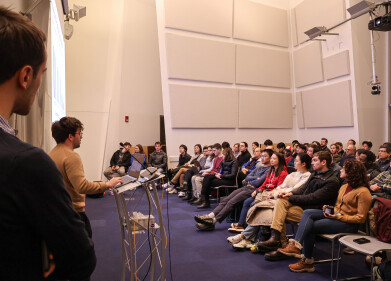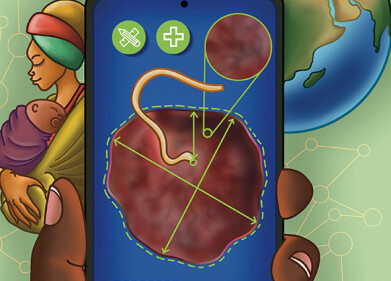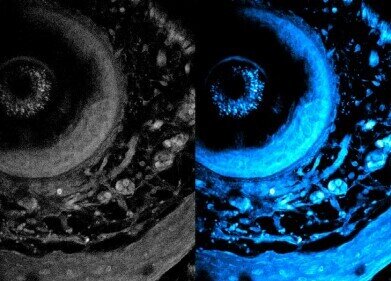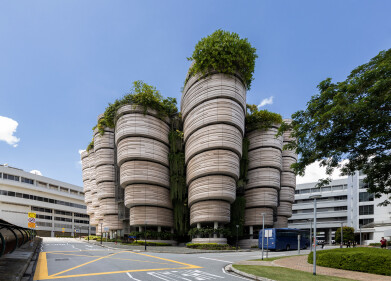-
 Dorothee Dormann (Credit: Anton Pfurtscheller)
Dorothee Dormann (Credit: Anton Pfurtscheller) -
 The protein TDP-43 (green) forms small clusters with an important regulatory function in the cell nucleus (Credit: Yelyzaveta Zadorozhna)
The protein TDP-43 (green) forms small clusters with an important regulatory function in the cell nucleus (Credit: Yelyzaveta Zadorozhna)
Research News
EU funding supports neurodegenerative diseases project
Jan 02 2024
The protein TDP-43, important for biochemical process and present in all cells of our body, is a current subject of scrutiny as it can aggregate into large clumps in the brain, which could be linked to degenerative diseases such as Alzheimer's and other dementias. Pursuing this line of research, a team led by Professor Dorothee Dormann from Johannes Gutenberg University Mainz (JGU), has been awarded a €2 million European Research Council (ERC) Consolidator Grant for the TDP Assembley Project, currently investigating the role of smaller scale groupings of these proteins in healthy cells.
Preliminary work has indicated that smaller assemblies of TDP-43 proteins might play an important role in regulatory processes, for example in the reading of genetic information and RNA production. Using methods from synthetic biology, she aims to artificially trigger various TDP-43 assemblies and investigate the resulting changes in cells. "The aim is to understand both the normal assembly process in healthy cells and the changes that lead to degenerative diseases when the assemblies become too large or too solid," explained Dormann. Such abnormal protein clumps not only cause problems in the brain but also lead to a malfunction of the regulatory processes that the smaller assemblies normally carry out. In her research, Dormann will address the question of consequences of losing these small TDP-43 assemblies.
This research is especially important for developing future drugs to treat neurodegenerative diseases because drugs that prevent the aggregation of TDP-43 may also interfere with the smaller TDP-43 assemblies that are important for the body. A precise understanding of the functions of the assemblies is therefore required as well as knowledge of how the assembly process can be controlled from the early stages to the formation of large aggregates.
EU Consolidator Grants are awarded to outstanding individual scientists working on ground-breaking research. Dorothee Dormann, Professor of Molecular Cell Biology at JGU and Adjunct Director at the Institute of Molecular Biology (IMB) in Mainz, is co-spokesperson of the Collaborative Research Center "Polymer Concepts for Understanding Cellular Functions" (CRC 1551) and spokesperson of its integrated Research Training Group, both funded by the German Research Foundation. She is also a Principal Investigator in the research network EMTHERA (Emerging therapeutic strategies against infections, inflammation and immune-mediated diseases), with which Mainz University is applying for funding as a Cluster of Excellence in the German Excellence Strategy competition. Dormann has received numerous awards for her research achievements, including the Heinz Maier-Leibnitz Prize 2014 and the Paul Ehrlich and Ludwig Darmstaedter Prize for Young Researchers 2019.
More information online
Digital Edition
Lab Asia 31.6 Dec 2024
December 2024
Chromatography Articles - Sustainable chromatography: Embracing software for greener methods Mass Spectrometry & Spectroscopy Articles - Solving industry challenges for phosphorus containi...
View all digital editions
Events
Jan 22 2025 Tokyo, Japan
Jan 22 2025 Birmingham, UK
Jan 25 2025 San Diego, CA, USA
Jan 27 2025 Dubai, UAE
Jan 29 2025 Tokyo, Japan


















